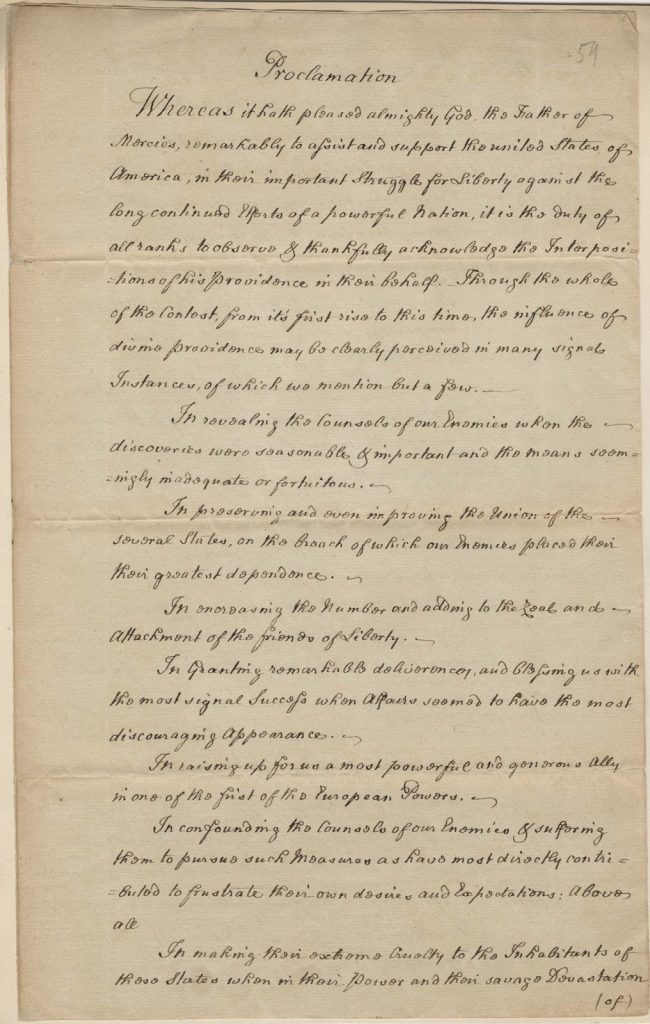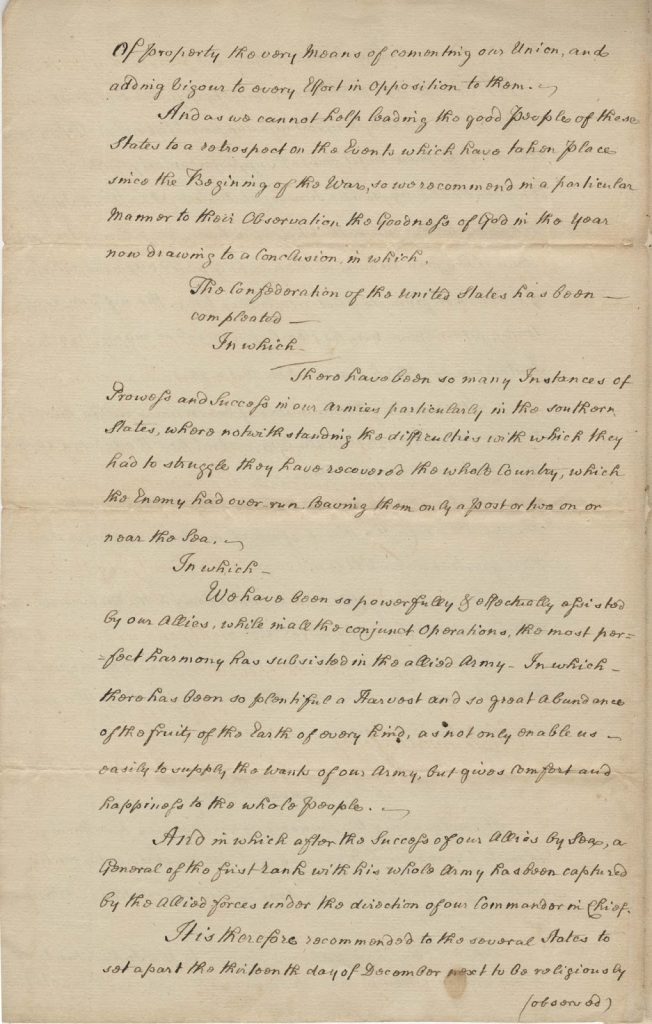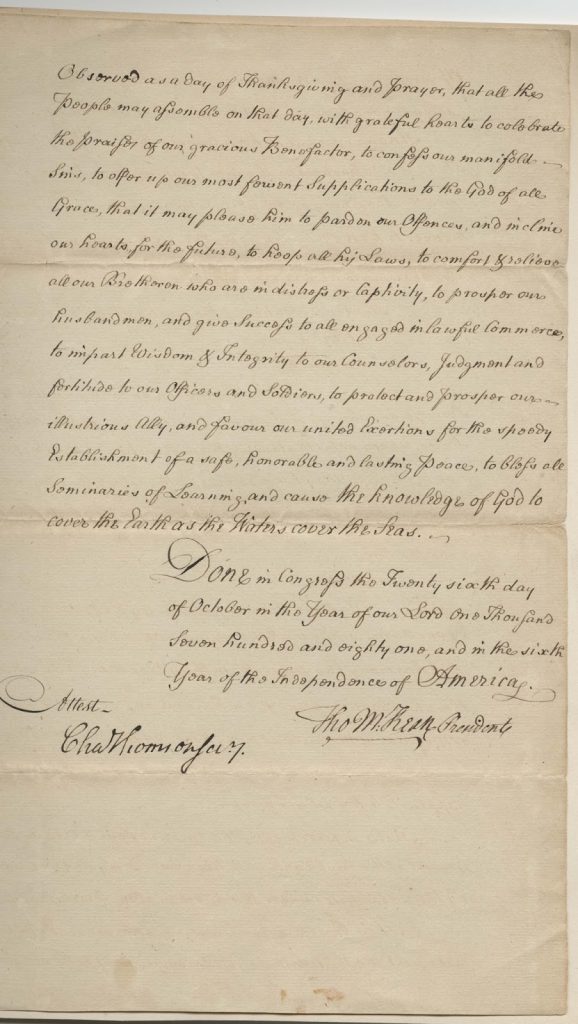Although Thanksgiving wouldn’t be formally established as an official annual holiday until 1862, the practice of setting aside days of Thanksgiving goes back much further. Colonial legislatures, especially in New England, issued periodic Thanksgiving Proclamations and the Continental Congress designated a day of Thanksgiving every year from 1777 to 1782. You can find the full text of the Continental Congress proclamations online thanks to Pilgrim Hall Museum.

The Rosenbach has the manuscript of the Congress’s Thanksgiving Proclamation for 1781, signed by the President of the Continental Congress, and the Congress’s secretary, Charles Thompson. It was a year in which the new nation had much to be thankful for–the Proclamation was issued on October 26, 1781, just seven days after the critical victory at Yorktown:
We beg recommend in a particular manner that they may observe and acknowledge to their observation, the goodness of God in the year now drawing to a conclusion: in which A mutiny in the American Army was not only happily appeased but became in its issue a pleasing and undeniable proof of the unalterable attachment of the people in general to the cause of liberty since great and real grievances only made them tumultuously seek redress while the abhorred the thoughts of going over to the enemy, in which the Confederation of the United States has been completed by the accession of all without exception in which there have been so many instances of prowess and success in our armies; particularly in the southern states, where, notwithstanding the difficulties with which they had to struggle, they have recovered the whole country which the enemy had overrun, leaving them only a post or two upon on or near the sea: in which we have been so powerfully and effectually assisted by our allies, while in all the conjunct operations the most perfect union and harmony has subsisted in the allied army: in which there has been so plentiful a harvest, and so great abundance of the fruits of the earth of every kind, as not only enables us easily to supply the wants of the army, but gives comfort and happiness to the whole people: and in which, after the success of our allies by sea, a General of the first Rank, with his whole army, has been captured by the allied forces under the direction of our illustrious Commander in Chief.

The day set for the Thanksgiving was December 13, 1781. This was a Thursday; apparently reflecting New England tradition. The Proclamation, which was composed by a committee composed of two Presybterian ministers (Jonathan Witherspoon of New Jersey and Joseph Montgomery of Pennsylvania) and two New Englanders (Roger Sherman of Connecticut, and Joseph Varnum of Rhode Island), did not assume God’s continued favor, but called on people to
Assemble on that day, with grateful hearts, to celebrate the praises of our gracious Benefactor; to confess our manifold sins; to offer up our most fervent supplications to the God of all grace, that it may please Him to pardon our offences, and incline our hearts for the future to keep all his laws; to comfort and relieve all our brethren who are in distress or captivity; to prosper our husbandmen, and give success to all engaged in lawful commerce; to impart wisdom and integrity to our counsellors, judgment and fortitude to our officers and soldiers; to protect and prosper our illustrious ally, and favor our united exertions for the speedy establishment of a safe, honorable and lasting peace; to bless all seminaries of learning; and cause the knowledge of God to cover the earth, as the waters cover the seas.

Happy Thanksgiving from all of us at the Rosenbach.
